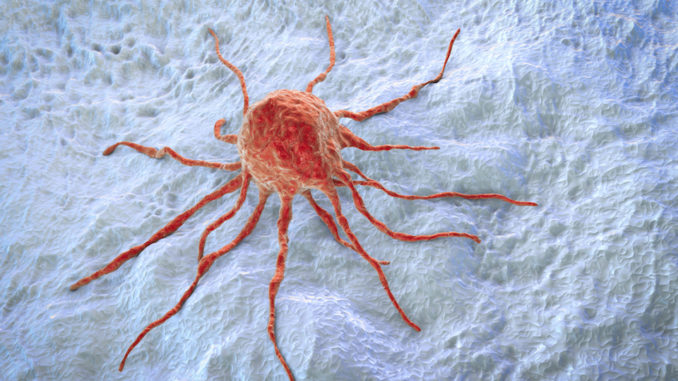
Synlogic, Inc., (Nasdaq: SYBX) a clinical stage company applying synthetic biology to beneficial microbes to develop novel, living medicines, today announced a new clinical collaboration with Roche (SIX:RO, ROG), to explore Synlogic’s Synthetic Biotic™ medicine, SYNB1891, a dual innate immune activator engineered to express a STING agonist, in combination with Roche’s PD-L1-blocking checkpoint inhibitor (CPI) atezolizumab (Tecentriq®) in patients with advanced solid tumors.
Synlogic expects to file an Investigational New Drug (IND) application with the U.S. Federal Drug Administration (FDA) in the second half of 2019 for SYNB1891 to enable the company to begin an open-label Phase 1 clinical trial to evaluate the candidate as a monotherapy and a combination treatment with atezolizumab.
“This collaboration is an important step in advancing SYNB1891 as a potential treatment for difficult to treat cancers as it provides us with access to an important checkpoint inhibitor, atezolizumab, while allowing us to maintain ownership of our novel development candidate,”
said Aoife Brennan, M.B. Ch.B., Synlogic’s president and chief executive officer.
“We believe that SYNB1891 has potential to offer a new and meaningful approach in the fight against cancer when used in combination with checkpoint inhibitors, by potentially enhancing their potency and effectiveness.”
Tumors have developed mechanisms to subvert natural processes to suppress and evade immune control. While the use of CPIs has greatly improved outcomes for patients with certain types of cancers, a percentage of patients still do not respond to these therapies. Engagement of both the innate and adaptive arms of the immune system has been shown to be critical in generating an efficacious antitumor immune response.
SYNB1891 is a non-pathogenic strain of E.coli that has been engineered to express a STING (STimulator of INterferon Genes) agonist and stimulate the innate immune system. When the bacteria are engulfed by antigen presenting cells within the tumor, the STING pathway is activated within the cell resulting in a type I interferon (IFN) response and the initiation and propagation of tumor-specific T-cell responses. In addition, the bacterial chassis used in Synlogic’s Synthetic Biotic approach is believed to stimulate the innate immune system by several other mechanisms, including via Toll-like receptors, potentially adding to the magnitude of the overall immune response. In combination with atezolizumab, SYNB1891 has the potential to elicit both innate and adaptive arms of the immune system to drive tumor reduction.
With an active IND, Synlogic plans to initiate an open-label, multicenter Phase 1 clinical trial of SYNB1891 administered by intra-tumoral (i.t.) injection to patients with advanced/metastatic solid tumors. The primary objective of the study is to evaluate the safety and tolerability of escalating doses of SYNB1891 to determine the single-agent maximum tolerated dose (MTD) as monotherapy and the recommended Phase 2 dose in combination with atezolizumab. In addition, the study will explore immune biomarkers, objective response rates (ORR), and time to progression for evaluated tumors. Synlogic will be the sponsor of the study and Roche will provide clinical supply of atezolizumab.

